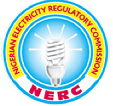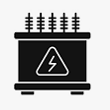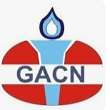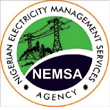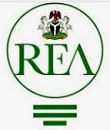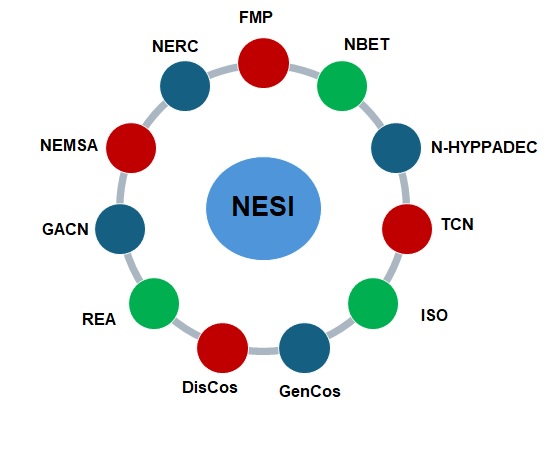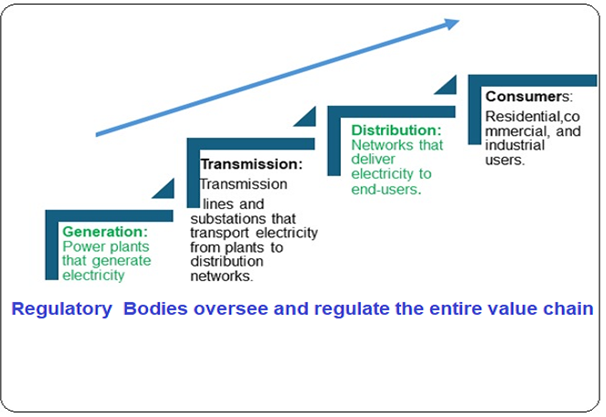Nigeria Electricity Supply Industry (NESI)
The Nigeria Electricity Supply Industry (NESI) refers to the entire system involved in generating, transmitting, distributing, and supplying electricity in Nigeria. It encompasses various entities such as the Transmission Company of Nigeria (TCN), Electricity Distribution Companies (DisCos), Electricity Generation Companies (GenCos), and regulatory bodies like the Nigerian Electricity Regulatory Commission (NERC).
The Nigerian Electricity Supply Industry (NESI) has seen notable transformations since 2005 when the Electric Power Sector Reform Act became effective. The shift from a state-run model to a more competitive market involving private investments is a critical step. This transition aimed to address inefficiencies, attract investment, and ultimately provide more reliable electricity supply to consumers.
Snapshot of History of Electricity Supply in Nigeria
Electricity generation in Nigeria started in 1886 with two generators in Lagos.
The Electricity Corporation of Nigeria (ECN) was formed in 1951 by an Act of Parliament, and the Niger Dams Authority (NDA) was created in 1962 for hydroelectric power.
In 1972, ECN and NDA merged to form the National Electric Power Authority (NEPA), responsible for generating, transmitting, and distributing electricity nationwide.
In 1990, NEPA underwent partial commercialization and the authority was divided into four independent divisions: Generation and Transmission; Distribution and Sales; Engineering; and Finance and Administration.
NEPA was restructured in 2005 into the Power Holding Company of Nigeria (PHCN) due to power sector reforms.
The Electric Power Sector Reform (EPSR) Act 2005 allowed private companies to take part in electricity generation, transmission, and distribution.
Federal Government unbundled PHCN into 11 distribution companies (DisCos), 6 generation companies (GenCos), and a transmission company (TCN).
The Nigerian Electricity Regulatory Commission (NERC) was also established as an independent regulator.
The transmission company is still government-owned.
In 2023, the EPSR Act 2005 was replaced with the new Electricity Act 2023.
The Electricity Act 2023 further unbundled Nigeria's electricity industry. Unlike the EPSR Act 2005, it allows Nigerian states to generate, transmit, and distribute electricity if they choose. They can also create their own independent electricity regulatory commissions.
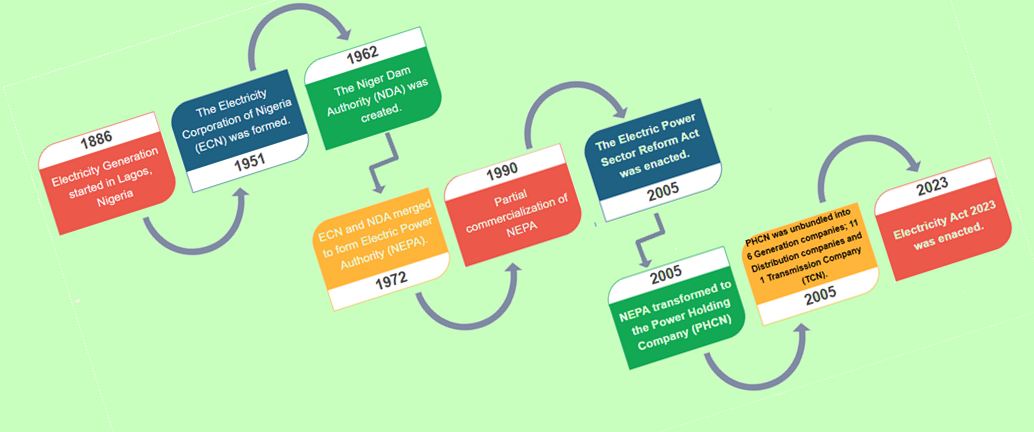

 Overview
Overview
